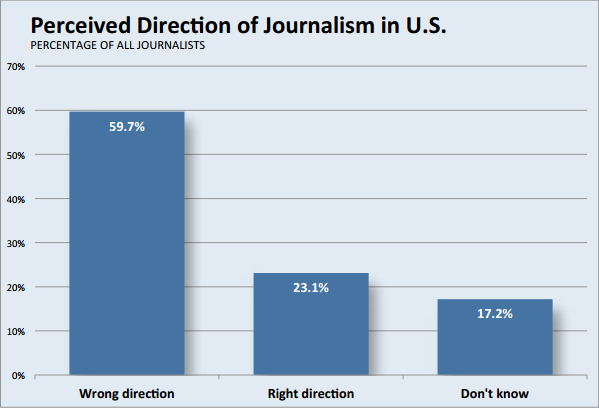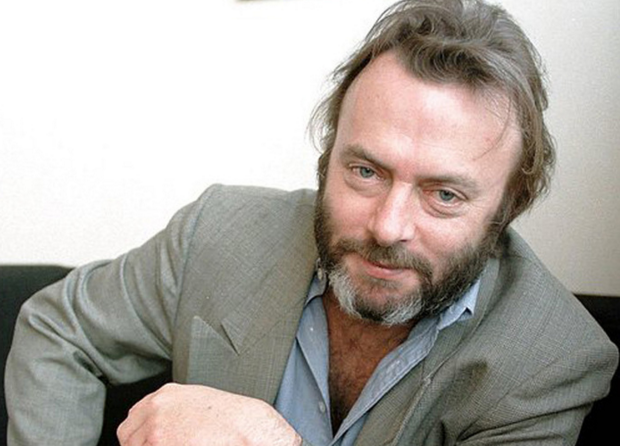
En undersökning från 2014 utförd av Indiana University i USA visar att merparten av amerikanska journalister anser att journalistiken och därmed media utvecklas i helt fel riktning.
Intro: Torbjörn Sassersson | Diagram och sammanfattning av undersökningen: Theatlantic.com
NewsVoice kompletterar med några valda citat som förstärker undersökningens resultat och även visar på journalistikens osäkerhetsfaktorer.
“I became a journalist because I did not want to rely on newspapers for information.”
Amin Maalouf, The First Century After Beatrice
“People sometimes imagine that just because they have access to so many newspapers, radio and TV channels, they will get an infinity of different opinions. Then they discover that things are just the opposite: the power of these loudspeakers only amplifies the opinion prevalent at a certain time, to the point where it covers any other opinion.”
“It is not enough for journalists to see themselves as mere messengers without understanding the hidden agendas of the message and the myths that surround it.”
“American journalism (like the journalism of any other country) is predominantly paltry and worthless. Its pretensions are enormous, but its achievements are insignificant.”
Glenn Greenwald, A Tragic Legacy: How a Good vs. Evil Mentality Destroyed the Bush Presidency
“The term propaganda rings melodramatic and exaggerated, but a press that—whether from fear, careerism, or conviction—uncritically recites false government claims and reports them as fact, or treats elected officials with a reverence reserved for royalty, cannot be accurately described as engaged in any other function.”
Ben Yagoda, The Art of Fact: A Historical Anthology of Literary Journalism
“?Theorists of journalism have long noted parallels to Heisenberg’s uncertainty principle in physics: by reporting on something, one subtly but irrevocably changes it.”
Cecelia Ahern, One Hundred Names
“Journalism classes teach us that one must extract oneself from the story in order to report without bias, but often we need to be in the story in order to understand, to connect, to help the audience identify or else it has no heart; it could be a robot telling the story, for all anyone cares.”
Intro: Torbjörn Sassersson


 Torbjörn Sassersson grundade NewsVoice 2011. Stöd hans arbete genom en
Torbjörn Sassersson grundade NewsVoice 2011. Stöd hans arbete genom en 

